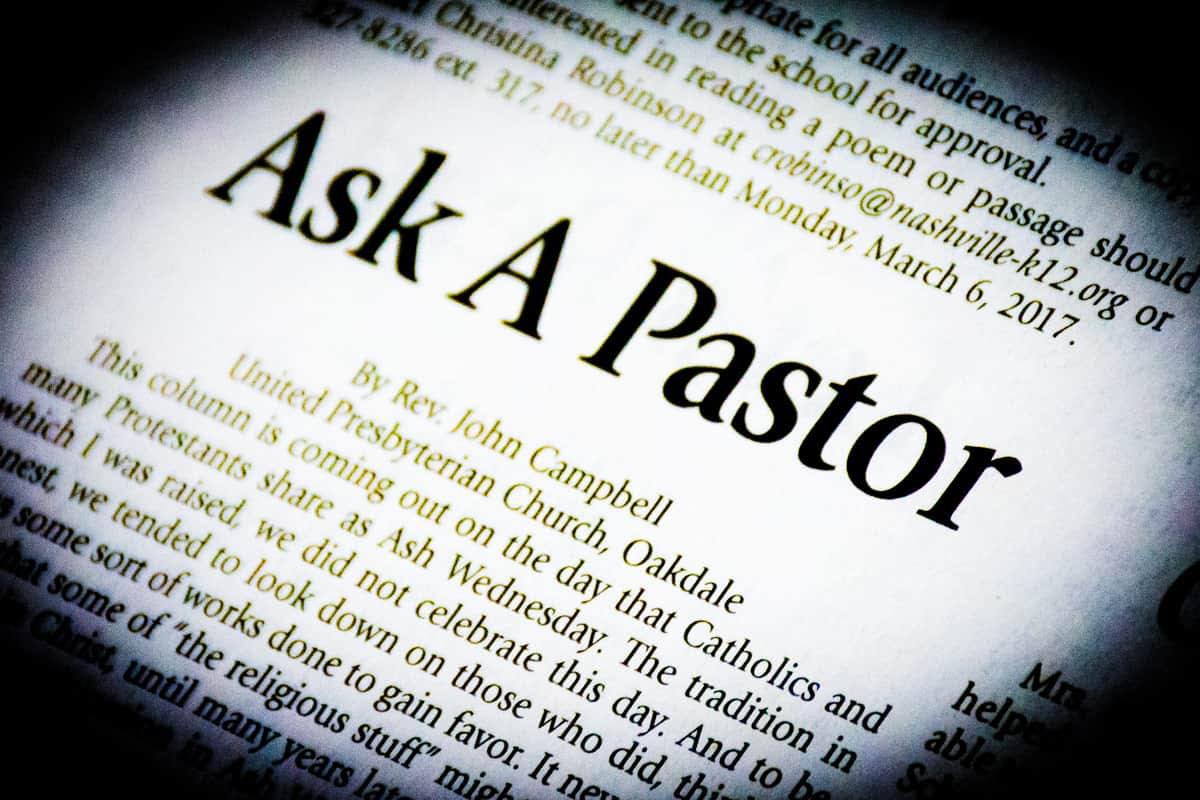
Mondays are for answering questions! I asked some people if they had any questions they would ask their pastor if they could, even if it was rough. Every Monday I’ll answer those questions! Feel free to message me with your questions. Here’s todays from Amanda
“ Why do you believe in God?” Amanda asks as a question she would ask a pastor. I’m going to come out right away and let you know that I’m going to answer this question in a highly subjective way. There are people who could address this issue much better than I ever could in an apologetic manner, but what I’m going to do is share a bit of my “theological” story, and maybe there are some who can connect with where I’ve been and where I am.
I grew up like many in the 70’s and 80’s Midwest being taught a very concrete view of who God is and what the Bible is. I was taught by that culture that everything we need to know about God we can find in the Bible and that there is a specific set of beliefs that will one day allow my ethereal soul to waft up in the air once my body dies and drift to a place north of here called heaven to be with God who resides up there. This view also demanded a very literal interpretation of scripture.
I remember the first time I had a discussion with my dad about Romans 14. The Apostle Paul writes generally about an argument the believers were having concerning things that don’t really matter. In this case, Paul addressed some Christians being offended that other Christians were eating meat that had been offered to idols at one time. I wondered aloud to my dad, who pastored in rural Ohio at the time, if Paul’s arguments here could be used for current conversations the church was having, not least of which was whether Christian music could have drums and guitars. With Michael W Smith on the rise, this was of particular importance to me. Frankly I was tired of hiding my cassette tapes under my pillow.
For years even after college, except in the areas of music and entertainment, I held deeply to many of the fundamentalist teachings of my youth. I remember sitting with a close Christian friend of mine at a restaurant in my early 20’s when he randomly mentioned the earth’s age as millions of years. My head spinned, and I quickly got dizzy. ‘How could this guy sit here and call himself a Christian?’ I wondered. ‘After all, the Bible is clear in its math that the world is roughly 6,000 years old.’
What followed was an intelligent discussion between friends as to how science had proved years before that the earth’s age was much older than a literal interpretation of Genesis would give it credit for. Honestly I had a hard time with the conversation. It struck at the core of who I was as a Christian, and also what I thought that Christians should believe. Also, Facebook tells me that the young man I had the conversation with has a birthday today.
A few years later I picked up three books that would really start to change how I thought. “Blue Like Jazz” by Donald Miller, “Velvet Elvis” by Rob Bell, and “The Language of God” by Francis Collins. They turned my worldview upside down and forced me to think objectively about things that I always took for granted.
In the years before this, or the first 25 to 30 years of my life, I believed what I was taught to believe. That is why I believed in God. I had amazing parents who taught me to love God and showed me how to do it, and a culture (both school and church) that taught me a systematic way that I should believe. And generally speaking, for about 22 years, I followed the letter of the law.
Then I began to take liberties in the way I lived my life that were clearly disconnected with how and what I said I believed. Dumb decisions and a need to please people led to walking through a monstrous ‘dark time’ in my life where I was confronted with what I believed based simply on how I wanted to act. One thing I always wanted, no matter what I believed, was to act in congruence with what I said I believed. Perfection wasn’t necessary, but neither was pride.
Eventually, I worked my way through some of those dark times and found myself, much like I did when I was younger, helping out at a church and loving the community . On the other side however, stood a wall of questioning and doubt as the internet lavished upon us more education than ever before, and my fundamentalist core doctrines began to fall one at a time.
As this happened, the three aforementioned book altered my worldview even more and began to stretch the way I thought and in some sense, the things I believed about God and Christianity. Not in a “I’m done with faith” sort of way, but definitely in a deconstructive sense.
This happens all of the time. Many of my friends have walked away from faith and God and church. Now here I was with some of the same questions. I actually think this is an important evolution for a person who grows up with faith. There has to be some transition that allows the person to think freely about what he or she believes about God and faith. And now here I was, and I wondered if I would come out believing on the other side.
One of the things bothering me through this whole process was how horrible evangelicals were about defending their faith. Whenever I heard someone make the reason for their faith “because the Bible says it” I wanted to rip my ears out. I would definitely rather hear “because I just do”. Everyone puts their faith in things they can’t see, so I’m okay with one of those things being God. What I’m not okay with any longer is people checking their brain at the door and accusing scientists of hating God as a reason why they are researching and proving their hypotheses.
During all this reading I was doing, I happened upon an article while I perused Rob Bell’s church web site. The article was entitled “How can the Bible be authoritative?” By a guy named N.T. Wright, an Anglican Bishop in England. It took me hours to read the essay/speech, and at the end of it, I felt like God injected me with a belief serum. It had been years since I felt so strongly about my faith, and all it took was reading a gentleman who clearly loved God, expertly handled the Scriptures and the context it was written in, and communicated that the history and literature aspects of the Bible must line up with its theology and vice versa.
There are of course other authors and pastors who are faithful to Scripture as a whole, and not simply as a means to teach a specific belief system. For me however, NT Wright’s mentorship through his writings on the Bible, combined with the faithful testimonies of my parents, family, and mentors over the years are why I’ve chosen to place my faith in God and specifically, Jesus the Christ.
One of the things that happens when we find ourselves in the wilderness as followers of Jesus is we begin to justify our need “to go back to Egypt”. In my case, “Egypt” was two places. My acting out and living “the way I wanted to” was place number 1. Number 2 looked much more like my childhood. A faith that hung more on the mantle of appearances and the need for systematic beliefs can be slavery, Paul says in Galatians 5:1 (and really all of Galatians focuses on this), if you are using it as a sign to represent or replace Christ.
But sometimes we buck against going to the place where God is sending us (geographically or metaphorically) because it’s not comfortable or what we know. It’s wild. There are no guard rails. We can’t control it. If we buck too hard however, our faith starts to shrink into an unrecognizable mass of “Why am I doing this in the first place?”




